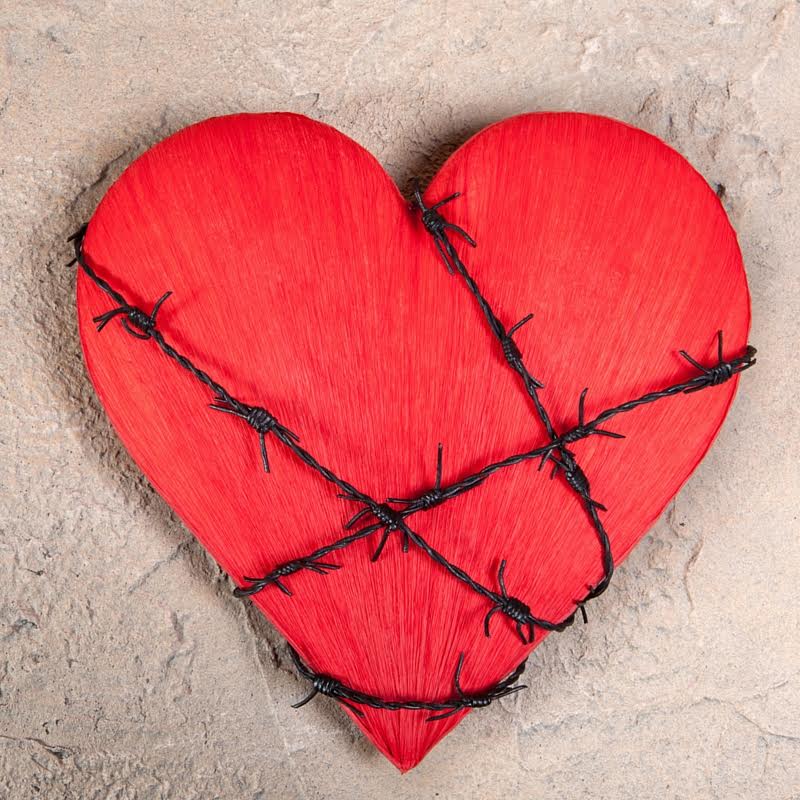
Love addiction sounds like it might be a fun thing to have. But it isn’t.
It’s a serious form of codependency where you place such a high value on a romantic partner (or more than one romantic partner) that your relationship with that person (or people) becomes all-consuming and the primary focus of your life. Basically, love addicts spend inordinate amounts of time obsessing, ruminating, and seeking information about the other person—to the detriment of their own life.
Like other addicts, love addicts typically come from abusive, addictive, or otherwise dysfunctional homes. Usually, they experienced emotional neglect and/or abandonment by one or both parents. This experience of neglect or abandonment creates within them, as children, intense anxiety—mostly because children depend upon their parents for their very survival. This anxiety surrounding important relationships becomes ingrained over time, and is carried forward into adulthood, manifesting as codependency and/or love addiction, until recovery or some other form of intensive healing work takes place.
The obsession and anxiety love addicts exhibit regarding their adult romantic relationships mimics the obsession and anxiety that a very young child tends to exhibit when separated from his or her caregivers. This is one of the reasons love addicted individuals often feel as though their relationships are a matter of life and death. “If I can’t be with him/her, I feel like I will die.” This desperation leads to all sorts of troubling behaviors—stalking, harassing, spying, demanding to know the innermost thoughts and fantasies of people they just met, ignoring obviously problematic traits of the person they are currently obsessing about, etc.
Here are ten questions that can help you determine whether love addiction might be an issue for you.
- Do you find yourself unable to stop seeing a specific person, even though you know that the relationship is destructive for you?
- Have you ever thought that if a romantic relationship ended, you wouldn’t be able to live without that person?
- Have you ever had sex when you didn’t want to because it was more important to please your romantic partner than to meet your own needs?
- Do you find yourself obsessing about a specific person even though these thoughts bring pain, craving, or some other form of emotional discomfort?
- Do you feel desperate about your need for a partner or future mate?
- Do you believe that being in a relationship will make your life bearable, or that being in a relationship is the only way to be happy?
- When you were growing up, did you often feel invisible, or that your parents (or caregivers) didn’t truly “know” or “see” you?
- Do you find yourself in a relationship that you can’t seem to leave, even though you want to do so?
- Are you unable to concentrate on other areas of life because thoughts or feelings you are having about another person are overwhelming?
- Do you feel that you have no identity if you are not in a relationship?
If you answered “yes” to five or more of these questions, you may be struggling with love addiction.
If so, it is important to understand that although you can recover from love addiction, the condition is a chronic, long-term issue, and you’ll need to educate yourself and seek treatment if the consequences you are experiencing are severe. Because love addiction is typically rooted in family of origin trauma, you will need to see a therapist skilled in family of origin trauma work, which can help you process and resolve the underlying issues that have led to your current relationship challenges. Therapists trained by the International Institute of Trauma and Addiction Professionals, known as CSATs, are especially helpful to love addicts. Twelve step groups such as Sex and Love Addicts Anonymous (SLAA) and Codependents Anonymous (CODA) are also helpful.
More information about love addiction can be found here.



6 Comments
I’ve been going to an online meeting with out structure on Sex and Love addiction. It really helps me. I have been in weary denial about my love addiction. Not sure if its a sex addiction as well. This really spoke to me. Looks like I need SLAA OR CODA and to double up on sponsors, if I can dedicate time for one addiction recovery program, I can make time for another. Ffffllllllip this is going to take lads of work. Still i’m grateful for this website and its amazing people!!
Ty for your article. I am a love addict and have been going to SLAA and working with my therapist who is sponsoring me on it. I read my highlights from your article and went over and discussed the questions with my sponsor therapist.
Hi Lisa, you’re welcome! Keep up the good work in SLAA and with your therapist.
Hi Nivi, I agree that SLAA, CODA or Love Addicts Anonymous are helpful for working on love addiction. Keep up the good work!
Thank you, I am a recovering sex-addict.
The road to recovery has been very painful and difficult mostly because I am also a recovering alcoholic and addict. Which lends to more self-destructive behavior when it comes to my sex-addiction. The shame from the sex-addiction behavior then lends to more substance abuse issues. And so the vicious cycle continues… But it is my hope and prayer that through the recovery process, I can learn new coping skills to deal with the shame from my addictions.
Hi Patrick, you’re exactly right—shame fuels addictive behavior. One of the most effective shame reducers is to connect with other safe people who “get it” and tell your story. If you’re in a 12-step program, be sure to get a sponsor, work the steps, and share every chance you get.
Keep showing up—it works!